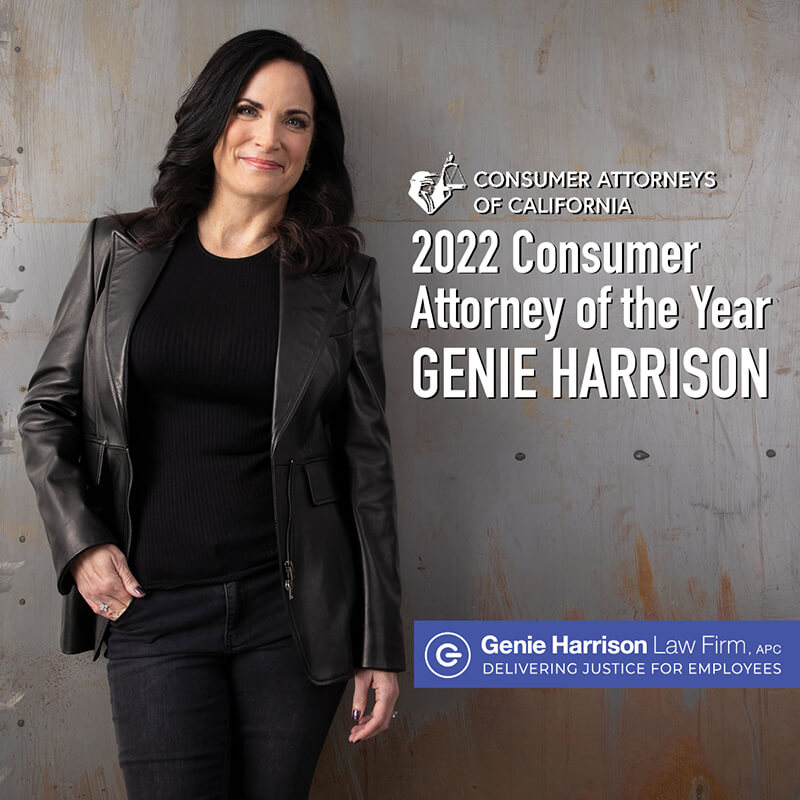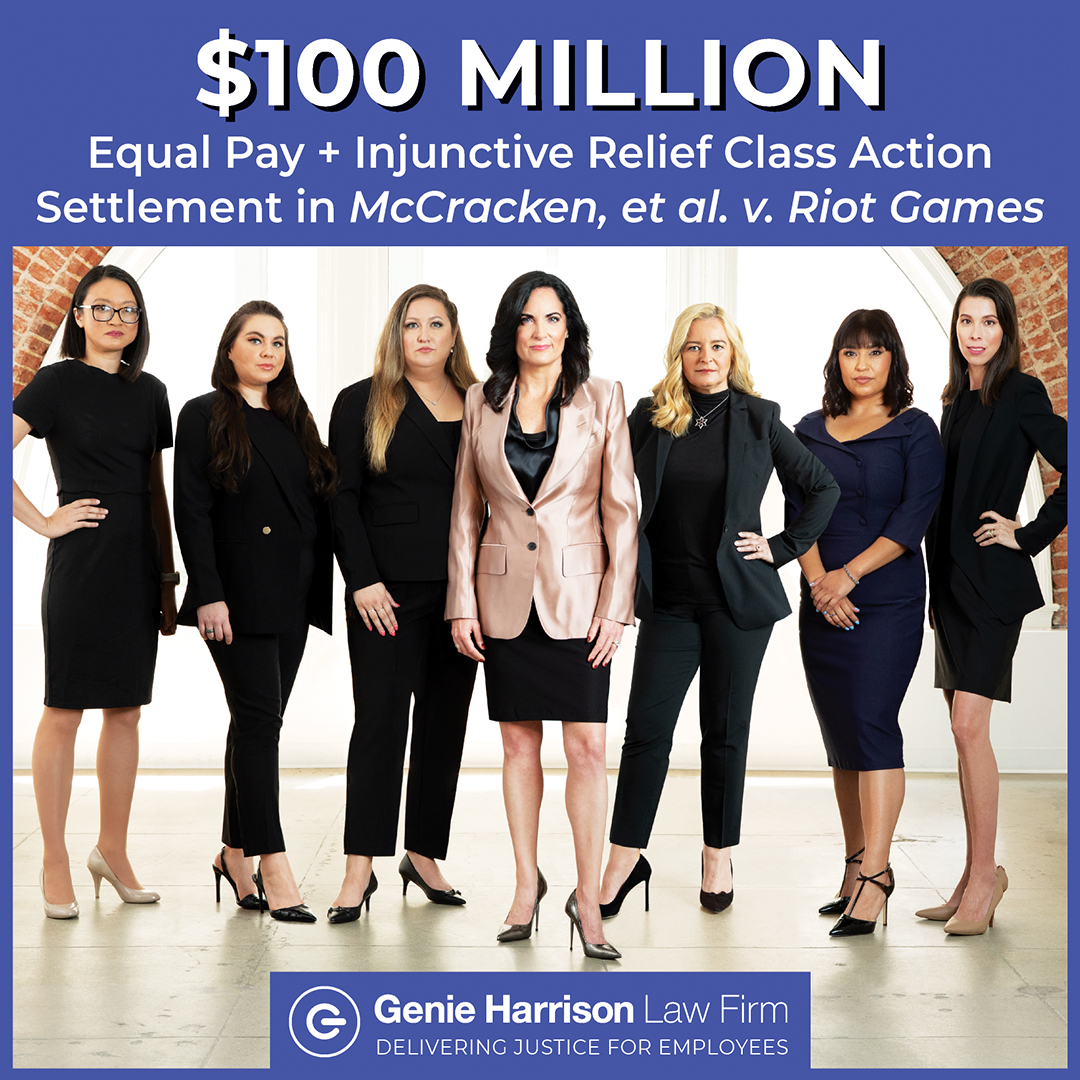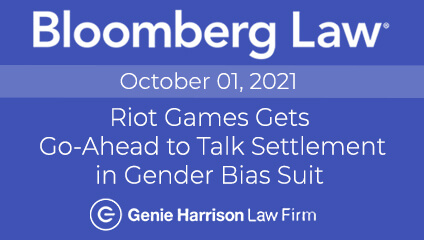Harvey Weinstein’s Case Relies on Weaponizing the Effects of Trauma
February 6, 2020 — by Genie Harrison for Ms. Magazine
The Harvey Weinstein trial is historic—not only because of the accusations against the Hollywood mogul, but also because of the number of women sharing their stories about formerly unspeakable abuse at his hands.
I represent two victims in their civil cases against Weinstein. I know that this #MeToo moment is unprecedented, a sea change in how our society deals with sexual abuse. But arriving this far it is just a first step. Real change won’t happen until our society recognizes what a mental health expert calls “the disorganizing consequences of trauma” and finally stops rewarding the perpetrators of sexual abuse.
Weinstein’s trial is a perfect example of the ways we continue to doubt victims who have suffered “disorganizing consequences,” and why we still have so far to go. His defense, led by attorney Donna Rotunno, is based on attacking the victims: They didn’t report their assaults to the police immediately, they remained in touch with Weinstein and they even agreed to be alone with him.
Prosecutor Joan Illuzzi knows better. She brought sex abuse trauma expert Dr. Barbara Ziv into the trial early in order to frame the victims’ testimony. It is a myth, Dr. Ziv told the court, to believe that the victim’s subsequent behavior offers proof she wasn’t raped. She explained that rape survivors exhibit a “range of behaviors, none of which tells you whether a sexual assault occurred.” Based on her two decades of treating sexual abuse victims, Dr. Ziv testified that victims may display more than 100 different behaviors. Every person’s response to sexual abuse is unique, and many never report their attacks.
The Rape, Abuse and Incest National Network (RAINN), the nation’s largest anti-sexual violence organization, reports that 77 percent of rapes are not reported to police, and, of those reported, only 4.6 out of 230 perpetrators are ever incarcerated. The data, from Department of Justice and FBI statistics published between 2013 and 2017, does not include Harvey Weinstein’s victims—whose very livelihoods depended on staying in his good graces.
When polled, 20 percent of victims cited fear of retaliation as the primary reason for not reporting. Delay in reporting sexual abuse is heartbreakingly common. A 2014 study of child sex abuse victims in Germany showed an average age for reporting abuse of 52.2 years. Ireland’s Central Statistics Office reported in 2018 that women who were sexually abused did not come forward for on average 20 years.
During a recent podcast with Pulitzer Prize-winning New York Times journalist Jodi Kantor, I related one of my client’s struggle with deciding whether to bring criminal charges against Weinstein. “[T]he sexual violence perpetrator really benefits from what happens emotionally to the victims as a result of being victimized,” I told Kantor, “which is the internal blame and shame and confusion and dissociation and repression that occurs inside of a victim.”
What sexual abuse victims endure is like an emotional tornado or a hurricane that robs many of the clarity needed to take specific societally-expected action. They experience “the disorganizing consequences of trauma.”
Weinstein’s defense attorneys are weaponizing the consequences of the trauma he inflicted. They are trying to convince jurors that the sex was consensual. They are attempting to prove each woman wanted “it”—whatever “it” was—and they are using letters, emails, texts and other communications to support their claim that the women wanted a relationship. They argue that if rape occurred, the victim would not have been willing to write or see him again.
Dozens of women have reported that they continued interacting with Weinstein, even after being assaulted or raped, because they refused to abandon their dreams of acting or screen writing. Many feared retaliation if they didn’t agree to his demands to meet with him, which he communicated through compulsive texts, calls and emails. My client, who says she was in her early twenties when Weinstein sexually battered her, believed she would jeopardize her career if she refused Weinstein’s demand to meet to discuss a movie role.
Some women may have willingly engaged in sexual relations with Weinstein, but the vast majority report that they did not. Ambra Guiterrez met with him about a part in a movie and, with the support of the New York City Police Department, captured him on tape trying to force her into his room after previously groping her. Anabella Sciora testified that Weinstein raped her. Victims Jessica Mann and Mimi Haleyi, whose cases are the basis of Weinstein’s New York trial, bravely shared their stories.
Perpetrators should never be allowed to exploit the very real “disorganizing consequences of trauma” to escape repercussions from their illegal actions. Society must understand, as Dr. Ziv testified, that many victims, for both pragmatic and emotional reasons, neither report immediately nor avoid their abusers.
The stories of these women should not be disbelieved simply because they continued to pursue their careers after one of the most powerful men in the business abused them.
Read the story above at Ms. Magazine >
About Genie Harrison
Genie Harrison represents plaintiffs in employment and sexual abuse cases as lead trial attorney at the Genie Harrison Law Firm in Los Angeles and is the Vice President of Consumer Attorneys Association of Los Angeles. She credits Ms. as a lifeline, during her college years, to the feminist movement; now, she writes about legal and social issues to provoke action. You can contact her at genie@genieharrisonlaw.com.





